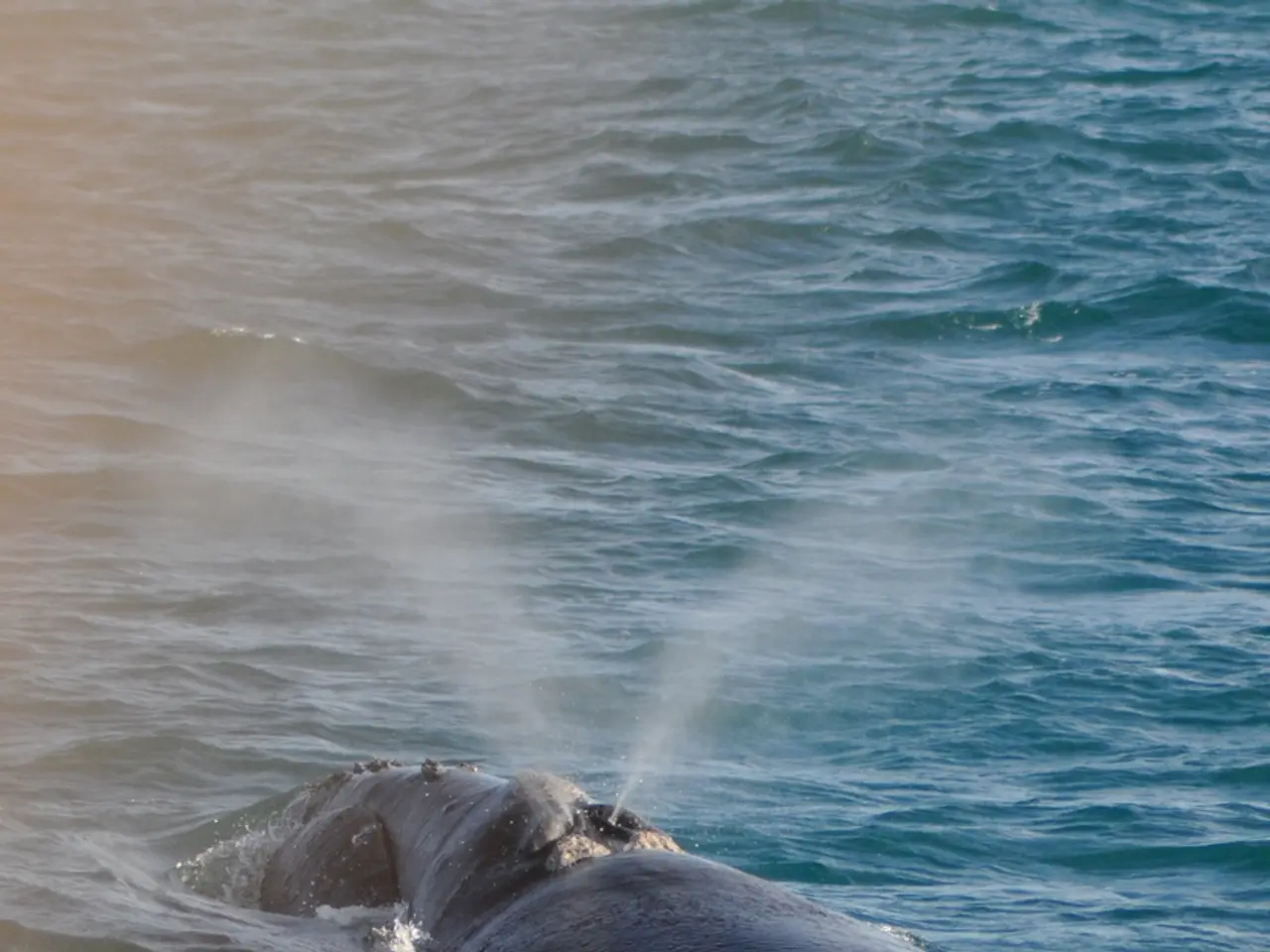Scientist's Daily Endeavors Tracking Sperm Whales
In the vast expanse of the Gulf of America, a significant step forward has been made in understanding the impact of multiple environmental stressors on sperm whales. The project, titled "Evaluating the Cumulative Impact of Multiple Stressors on Cetaceans," employs digital acoustic recording tags (DTAGs) to gather detailed acoustic and movement data from these majestic creatures.
The deployment of these tags is part of a collaborative effort involving the deck crew, engineers, scientists, galley staff, and the dedicated office team onboard the NOAA Ship Gordon Gunter. During the first leg of the cruise, three DTAGs were successfully deployed and recovered, each providing valuable insights into the vocalizations, diving behavior, and feeding activity of the sperm whales.
Once attached temporarily to a sperm whale, these suction-cup devices measure ambient sound, movement orientation, swim speed, animal vocalizations, pressure (depth), temperature, acceleration, and VHF tracking. After a period of 24 hours, the tags are programmed to release, but they can pop off earlier. Once the tag is retrieved from the water, the data download process begins.
The data collected from these tags can offer a brief glimpse into the animal's diving depths, foraging behavior, and surfacing intervals between dives. Dr. Nikki Vollmer, a key member of the research team, collected one such tag on deck, her face beaming with excitement as it contained samples of the whale's skin for genetic analysis.
Dr. Matthew Bowers, another researcher, quickly checked the data for accuracy and produced a figure showing the diving behavior of the whale over the 24 hours. The aim of the survey is to delve deeper into the lives of sperm whales as it continues, providing valuable insights into their demographics and foraging behavior under exposure to multiple environmental stressors.
This study is funded by the Open Ocean Trustee Implementation Group as part of their Monitoring and Adaptive Management activities. All activities are conducted under a scientific research permit (Permit #25867) and approval from the NOAA Institutional Animal Care and Use Committee. The project is focused on the demographics and foraging behavior of sperm whales (Physeter macrocephalus).
The challenge after tagging is to find the 6-inch orange tag floating in the ocean. This requires calm seas, careful coordination, and patience due to the whale's ability to stay submerged for over two hours. Despite this, the crew managed to track down the tag using the tag's surface signal, ensuring that the valuable data it contained could be analysed.
As the research continues, the hope is that the insights gained from this study will help to protect and conserve these fascinating creatures, ensuring their continued presence in the Gulf of America for future generations to marvel at.
- In scientific research circles, the study titled "Evaluating the Cumulative Impact of Multiple Stressors on Cetaceans" is gaining attention, as it delves into the lives of sperm whales to understand their response to multiple environmental stressors.
- Advancements in technology have played a crucial role in this study, with digital acoustic recording tags (DTAGs) being employed to collect detailed data on sperm whales' vocalizations, diving behavior, and feeding activity.
- The surfacing of this project is not only in the scientific domain but also in data-and-cloud-computing, as the data collected from these tags is analyzed to offer insights into the lifestyle and demographics of sperm whales.
- ensuring sustainable living for future generations, the open-source data collected will be shared among environmental-science researchers, contributing to theglobal efforts towards understanding and mitigating the impact of climate-change on marine species.
- Beyond the Gulf of America, this research can have far-reaching implications for horse-racing and sports enthusiasts, as understanding the behavior of sperm whales under multiple environmental stressors can offer insights into the effects of similar stressors on other species, including farm animals and racehorses.
- Similar to the latest gadgets in home-and-garden sector, DTAGs are designed to measure various parameters such as pressure, temperature, and acceleration, providing a comprehensive understanding of the species' behavior and response to stressors.





